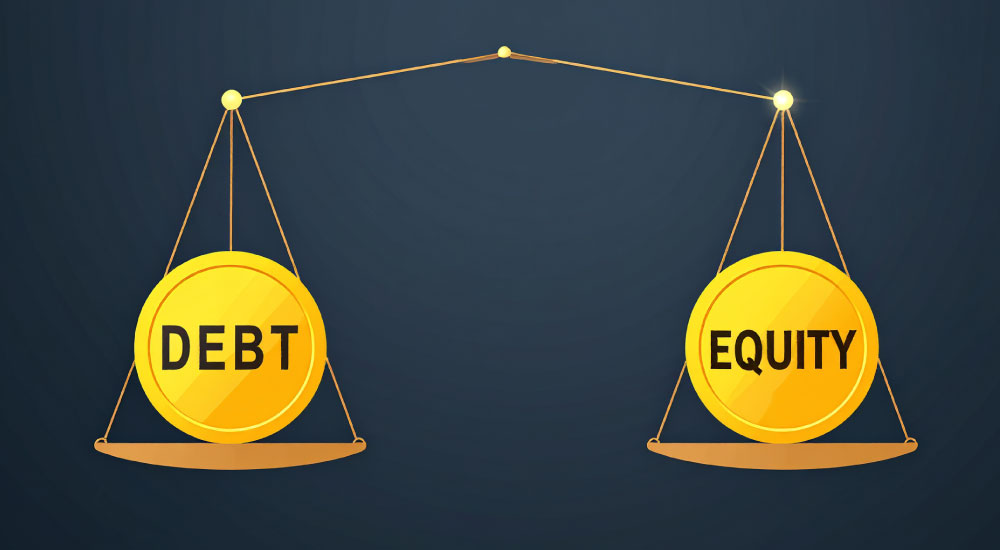Unsecured Business Loans for Indian MSMEs: Essential Insights
In today’s fast-paced business world, access to capital is crucial for growth and stability. However, what happens when you don’t have assets to offer as collateral? This is where unsecured business loans come in. These financing solutions enable MSMEs to obtain funding without requiring collateral to secure them.
In this blog, we will explore the world of unsecured loans, including their benefits, considerations, and how they are reshaping the financial landscape for Indian businesses.
What are unsecured business loans?
An unsecured business loan is a type of loan that does not require you to pledge any assets as collateral. Unlike traditional secured loans, which require you to put up property or equipment to secure the loan, unsecured loans are based on the borrower’s creditworthiness, business performance, and trustworthiness.
For MSMEs, this can be a game-changer, especially for the ones that don’t have significant physical assets but have a strong financial track record. Some key features of unsecured loans that borrowers must be aware of include the following:
- No collateral required
- Faster approval process
- Flexible use of funds
- Typically shorter loan terms
- Higher interest rates compared to secured loans
The unsecured loan limit: Understanding your borrowing power
The unsecured loan limit refers to the maximum amount a lender is willing to provide without collateral. This limit depends on factors such as:
- Business’s credit score
- Annual revenue
- Time in business
- Industry sector
For example, a well-established MSME with a strong credit history might qualify for an unsecured loan limit of ₹50 lakhs or more, while a newer business might start with a lower limit.
Benefits of unsecured business loans for Indian MSMEs
For many MSMEs, securing financing can be a challenge, especially if the business doesn’t have significant assets. Here’s how unsecured business loans can benefit small and medium enterprises:
1. Quick access to capital
In the fast-paced world of business, timing is everything. Unsecured loans often have a streamlined approval process, allowing you to seize opportunities without delay.
2. No collateral required
One of the biggest advantages of unsecured business loans is that they don’t require you to risk your personal assets. Whether you own property or have expensive equipment, you won’t need to pledge any of it to secure the loan. This reduces the risk of losing valuable assets if your business faces difficulties repaying the loan.
3. Flexibility in fund utilisation
Unsecured loans offer greater flexibility in how the funds can be used. You’re not restricted to a specific purpose like some other types of financing. Whether you need funds for expansion, covering short-term cash flow gaps, or upgrading your equipment, an unsecured business loan can be used for almost any business purpose.
4. Building credit history
Responsibly managing an unsecured loan can significantly boost your business credit score, opening doors to better financing options in the future.
5. Preserving equity
Unlike equity financing, unsecured loans allow you to maintain full ownership and control of your business.
Considerations before opting for an unsecured business loan
While unsecured business loans offer numerous advantages, it is crucial to approach them with a clear strategy:
1. Higher interest rates
The lack of collateral typically means lenders charge higher interest rates to offset their risk. It is crucial to factor this into your repayment plans.
2. Shorter repayment terms
Unsecured loans often come with shorter repayment periods compared to secured loans. Ensure your cash flow can handle the repayment schedule.
3. Lower loan amounts
The unsecured loan limit is generally lower than what you might secure with collateral. Assess whether the available amount meets your business needs.
4. Impact on business cash flow
Unsecured loans can help address immediate financial needs, but the higher interest rates and repayment terms can also put pressure on your business’s cash flow. It is essential to evaluate whether your business can handle the financial burden before taking out a loan.
5. Stricter eligibility criteria
Lenders may have more stringent requirements for unsecured loans. Lenders often require a strong credit history, a stable business performance, and a good relationship with your financial institution. For businesses with less established credit profiles, approval may be more challenging.
How to qualify for an unsecured business loan?
Below are the criteria that you must fulfil to be eligible for these loans:
1. Maintain a strong credit score
Both your personal and business credit scores play a crucial role. Aim for a score of 700 or higher for the best terms.
2. Showcase consistent revenue
Lenders want to see a steady cash flow. Prepare detailed financial statements demonstrating your business’s profitability.
3. Have a clear business plan
Outline how you intend to use the loan and how it will contribute to your business growth.
4. Gather essential documents
Typical requirements include documents like:
- Business and personal tax returns
- Bank statements
- Profit and loss statements
- Business licenses and registrations
Application process for unsecured business loans
Applying for an unsecured business loan in India is straightforward, but it requires careful planning to meet the eligibility criteria. Here’s a step-by-step guide to help you navigate the process:
1. Evaluate your business needs
Before applying, assess why you need the loan. Whether it is for expanding operations, covering working capital, or upgrading infrastructure, having a clear purpose for the loan helps you align the amount and terms with your business objectives.
2. Check your creditworthiness
Lenders in India typically look at your credit score, business financials, and past performance when considering an unsecured loan application. If you have a strong credit history, you’re more likely to secure favourable terms.
3. Choose the right lender
There are several lenders in India offering unsecured business loans, including banks, non-banking financial companies (NBFCs), and online lending platforms. Compare interest rates, loan terms, processing fees, and repayment options to find the best lender for your needs.
4. Prepare documentation
While unsecured loans don’t require collateral, lenders may ask for documents such as:
- Financial statements (Profit & Loss, Balance Sheet)
- GST returns
- Business registration documents
- Income tax returns (ITR)
- Bank statements
5. Submit the loan application
Once you have the necessary documentation, you can submit your application either online or in person as applicable. Some lenders offer quick online applications, making it easier for MSMEs to apply and get approval fast.
6. Wait for Approval
After submission, the lender will review your application and perform a credit check. If approved, they will offer you loan terms, and you can choose whether to proceed with the loan agreement.
Government initiatives supporting unsecured business loans
The government keeps on introducing schemes to support unsecured business loans. Some of them are:
1. Credit Guarantee Fund Trust for Micro and Small Enterprises (CGTMSE) – This scheme provides partial credit guarantees to lenders, encouraging them to offer unsecured loans to MSMEs.
2. Pradhan Mantri Mudra Yojana (PMMY) – It offers unsecured loans up to ₹10 lakhs to non-corporate, non-farm small/micro enterprises.
3. Stand-Up India Scheme – It promotes entrepreneurship among women and SC/ST communities, offering unsecured loans between ₹10 lakhs to ₹1 crore.
Case Study: Transforming businesses with unsecured loans
Meet Anita: From local shop to e-commerce success
Anita runs a small handicraft store in Jaipur. With tourism hit by global events, she needed to pivot. An unsecured business loan of ₹5 lakhs allowed her to:
- Build an e-commerce website
- Invest in digital marketing
- Expand her product line
Result: Within 6 months, Anita’s online sales surpassed her physical store revenue, and she’s now shipping products across India and internationally.
Conclusion: empowering your business growth
Unsecured business loans represent a significant opportunity for Indian MSMEs to fuel their growth ambitions. By offering quick access to capital without the need for collateral, these loans are democratizing access to finance and enabling businesses to seize opportunities in an increasingly competitive landscape.
However, it’s crucial to approach unsecured loans with a clear strategy. Carefully assess your business needs, understand the terms, and have a solid plan for utilizing and repaying the funds.
TallyCapital is committed to empowering Indian businesses with the knowledge and tools they need to thrive in today’s dynamic economic landscape. Whether you’re considering an unsecured business loan or exploring other financial strategies, they support your growth at every step.
Latest Blogs

How to Prepare Your MSME for Funding: A Step-by-Step Guide

Debt vs Equity Financing: What is Best for Your Business?

Financial Planning for Startups: Tools and Tips for Success

Scaling Smart: When and How to Raise Capital?

How to Manage Loan Repayments Without Straining Your Business?

Smart Ways to Improve Your Business Credit Score

